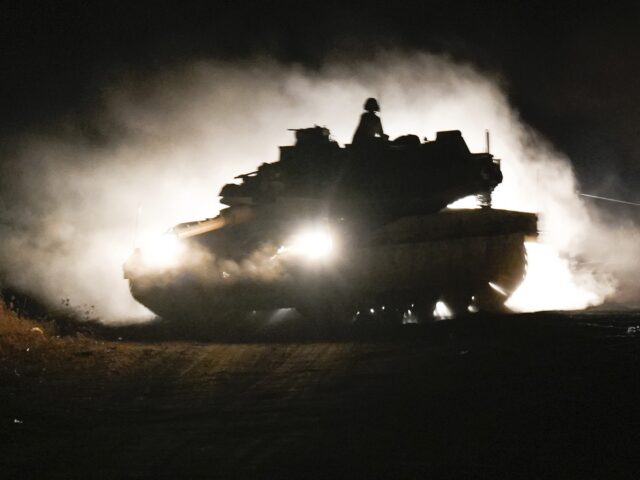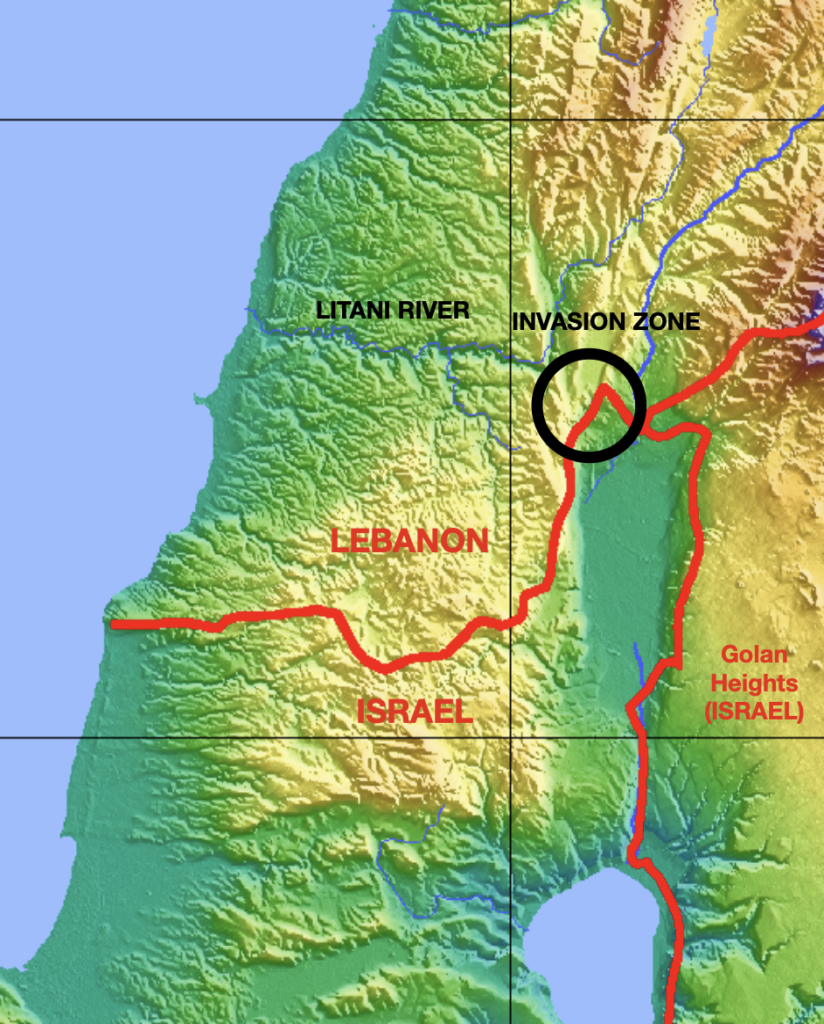‘Third Lebanon War’ Begins: Israel Launches Ground Offensive
 Baz Ratner / Associated Press
Baz Ratner / Associated Press
The Third Lebanon War has officially begun, according to Israel’s Army Radio, as Israel Defense Forces (IDF) ground forces crossed into Lebanon early Tuesday morning to remove Hezbollah outposts that threaten Israeli communities.
The IDF apparently crossed into Lebanon at the “finger” or “panhandle” of Israel’s Galilee region, near the town of Metula, which was Israel’s northernmost town until the capture and annexation of the Golan Heights.
In a statement, the IDF said:
In accordance with the decision of the political echelon, a few hours ago, the IDF began limited, localized, and targeted ground raids based on precise intelligence against Hezbollah terrorist targets and infrastructure in southern Lebanon. These targets are located in villages close to the border and pose an immediate threat to Israeli communities in northern Israel.
The IDF is operating according to a methodical plan set out by the General Staff and the Northern Command which IDF soldiers have trained and prepared for in recent months.
The Israeli Air Force and IDF Artillery are supporting the ground forces with precise strikes on military targets in the area.
These operations were approved and carried out in accordance with the decision of the political echelon. Operation “Northern Arrows” will continue according to the situational assessment and in parallel to combat in Gaza and in other arenas.
The IDF is continuing to operate to achieve the goals of the war and is doing everything necessary to defend the citizens of Israel and return the citizens of northern Israel to their homes.
The ground invasion began exactly two weeks after Israel’s security cabinet decided to adopt a new war goal, namely the safe return of Israel’s northern residents to the homes from which they were evacuated when Hezbollah opened fire in October.
According to Army Radio, the goal of the war is not to occupy southern Lebanon, or to establish a “security zone” (see below), but simply to remove Hezbollah bases and positions from which terrorists have been firing on Israeli citizens.
The First Lebanon War took place in 1982, when Israel invaded southern Lebanon to remove Palestinian guerillas who had shelled Israeli communities. Israel won the war but went astray when it continued on to Beirut and tried to install a friendly government in Lebanon, amid civilian casualties and atrocities by local militias. While the Palestine Liberation Organization (PLO) was forced to leave Lebanon, Israelis came to regard the war as their own Vietnam.
For 18 years, Israel occupied a “security zone” north of the border, until repeated attacks by Hezbollah insurgents led the Israeli government to seek a negotiated withdrawal. When talks failed, Israel simply left unilaterally in 2000 — under fire from Hezbollah, which claimed victory.
The Second Lebanon War began in 2006, when Hezbollah kidnapped and killed several Israeli soldiers. Israel hit Hezbollah hard, but its ground forces, which had been focused on responding to the threat of the second Palestinian intifada, were ill-prepared and underequipped.
While the Israeli Air Force (IAF) successfully pounded Hezbollah positions, civilian casualties prompted global protest, and the George W. Bush administration pushed Israel to accept a stalemate and a compromise — namely, United Nations Security Council Resolution 1701, which said Hezbollah had to withdraw north of the Litani River.
Hezbollah ignored the resolution, and neither the United Nations nor Lebanon enforced it. That allowed Hezbollah to build a massive arsenal, and underground tunnels, which posed a threat to Israeli communities. Iran, which arms and funds Hezbollah, also used the terror organization as a deterrent against an Israeli attack on Iran’s nuclear program.
Last October, Hezbollah began firing at Israel after Hamas launched its brutal terror attack in the southern part of the country. The Biden administration sought a diplomatic resolution, on the heels of his push in 2022 for a deal in which Israel gave up some of its offshore gas fields in exchange for vague guarantees Hezbollah would not start another war.
But rather than a deal, Hezbollah preferred to continue firing at northern Israel, or at least to emerge with an agreement that would allow it to claim its intervention had forced Israel to accept an unfavorable ceasefire in Gaza.
That appears to have been a major strategic blunder. In the space of two weeks, Israel has destroyed Hezbollah’s leadership and communications infrastructure, as well as much of its arsenal, and is now pressing its advantage.
Prime Minister Benjamin Netanyahu appears determined to ensure that the Third Lebanon War does not end with the indeterminate result of the first two, but rather with Israeli victory, and a Lebanon free from enemy interventions.
Joel B. Pollak is Senior Editor-at-Large at Breitbart News and the host of Breitbart News Sunday on Sirius XM Patriot on Sunday evenings from 7 p.m. to 10 p.m. ET (4 p.m. to 7 p.m. PT). He is the author of The Agenda: What Trump Should Do in His First 100 Days, available for pre-order on Amazon. He is also the author of The Trumpian Virtues: The Lessons and Legacy of Donald Trump’s Presidency, now available on Audible. He is a winner of the 2018 Robert Novak Journalism Alumni Fellowship. Follow him on Twitter at @joelpollak.
Source link


